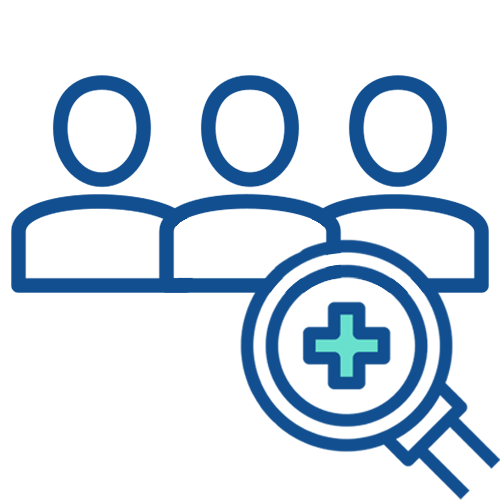Depression Psychiatrist in River Oaks
Depression is a serious mental health condition with the potential for profound impact, including suicidal thoughts. Recognize the signs, seek help. If facing depression and suicidal thoughts, consult a Psychiatrist at PsychPlus in River Oaks for crucial support.
Customized Care at PsychPlus
Guiding the Path to Well-being
Empowering Lives, Cultivating Minds
Moving Forward with Compassion



Why Choose PsychPlus and Why We’re the Best

Unparalleled Expertise
Our team includes some of the best depression psychiatrists in River Oaks, each with extensive experience in diagnosing and treating various mental health conditions, including depression. They stay at the forefront of psychiatric advancements to ensure you receive the most effective and evidence-based treatments available.

Customized Care
We believe in a holistic approach to mental health. Our psychiatrists collaborate closely with your other healthcare providers to develop integrated treatment plans tailored to your unique needs and goals. Your journey to mental wellness is personalized every step of the way.

Cutting-Edge Treatments
We’re committed to offering the latest treatment options for depression and other mental health disorders. From psychotherapy to medication management and innovative therapies, we employ a wide range of strategies to address your specific challenges effectively.

Supportive Environment
PsychPlus is a judgment-free zone where you are seen, heard, and cared for. We understand the importance of feeling safe and comfortable when discussing your mental health, and our team is dedicated to creating an environment where you can open up without fear of judgment.
Don’t wait to get the high-quality mental health care you deserve. Contact PsychPlus today to learn more or book an appointment with one of the top-rated depression psychiatrists in River Oaks. Your path to mental wellness begins here.
Most Insurances Accepted
Psych

what we treat
Psych

what
we treat
Peace of mind at your fingertips.

Depression

ADHD

Anxiety


Benefits of PsychPlus
Compassionate providers who are committed
to making you feel your best
More flexibility with virtual appointments
24/7 online or mobile self scheduling
Accept most insurance plans
Same day & next day appointments
Lower medical costs
Get the app


Want to join our team?
Help reimagine access to modern and accessible mental healthcare.

What people are saying
What people are saying
Symptoms of Depression
Understanding the various symptoms of depression, including disruptive mood dysregulation disorder (DMDD) and persistent depressive disorder (PDD), is crucial for timely intervention and personalized care. Different age groups may exhibit unique symptoms, making targeted treatment essential. Recognizing these distinctions is critical for accurate diagnosis and improved prognosis. By identifying common and unique symptoms across different age groups, healthcare providers can offer tailored treatment plans for individuals battling this major depressive disorder.

Common Symptoms
Common symptoms of depression include anhedonia, changes in sleep, appetite, and energy. Additionally, there is a persistent feeling of sadness, irritability, and loss of interest. Unexplained physical problems like aches and pains can also indicate depression. Difficulty concentrating, decision-making, and thoughts of suicide are common, along with feelings of guilt, worthlessness, helplessness, or hopelessness.

Unique Symptoms in Different Age Groups
Recognizing symptoms in different age groups is crucial for accurate diagnosis and tailored treatment. In children, symptoms may manifest as irritability, clinginess, or refusal to go to school, while adolescents may exhibit irritability, anger, and withdrawal from family. On the other hand, older adults may display memory problems, cognitive decline, or unexplained physical issues. Identifying unique symptoms in different age groups is pivotal for providing personalized care and improving the prognosis.
Causes of Depression
Understanding the genetic underpinnings aids in identifying a predisposition to major depressive disorder. Environmental factors like trauma and loss can contribute to the development of mental disorders, including depression and heart disease. Recognizing the interplay of genetics and environment, as well as hormonal changes that happen over the lifespan, provides insights into the multifaceted nature of clinical depression, enhancing treatment strategies.
Diagnosis Process for Depression
Ensuring specialized care for major depressive disorder, consulting a psychiatrist or mental health professional for diagnosis is essential. Diagnostic tests and criteria aid in accurate identification, while collaboration with mental health professionals enhances accuracy. Comprehensive assessment and diagnosis are facilitated through partnering with mental health professionals. Seeking professional help from a health care provider is crucial for effective depression management, including addressing mental disorders, talk therapy, and different types of antidepressants.
Want to join our team?
Help reimagine access to modern and accessible mental healthcare.



























